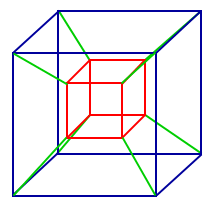It is a well-known fact that the harmonic series (the sum of the reciprocals of the natural numbers) diverges.
But what about the sum of reciprocals of the prime numbers?
These diverge, too!
One way to interpret this fact is that there must be a “lot” of primes—well, of course there are an infinite number of them, but not every infinite set of natural numbers has a reciprocal sum which diverges (for instance, take the powers of 2). So, while primes get sparser and sparser the farther you go out, they are not as sparse as the powers of 2.
Presentation Suggestions:
This is best done after you have shown in class that the harmonic series diverges.
The Math Behind the Fact:
Euler first noted this fact, and one proof can be obtained by taking the natural logarithm of both sides of Euler’s Product Formula, (using s=1 in that formula) and noting that the right hand side consists of terms of the form
Log(p/p-1) = Log(1 + (1/p-1)),
where Log denotes the natural log, and p is a prime. Using a Taylor series for Log, this term is itself bounded by 1/(p-1) < 1/p. Thus, if the sum of reciprocals for primes converge, then the harmonic series would converge, a contradiction.
There are many refined questions you can ask about the number of primes. See the Fun Fact How Many Primes.
How to Cite this Page:
Su, Francis E., et al. “Sum of Prime Reciprocals.” Math Fun Facts. <https://www.math.hmc.edu/funfacts>.
Fun Fact suggested by:
Lesley Ward

